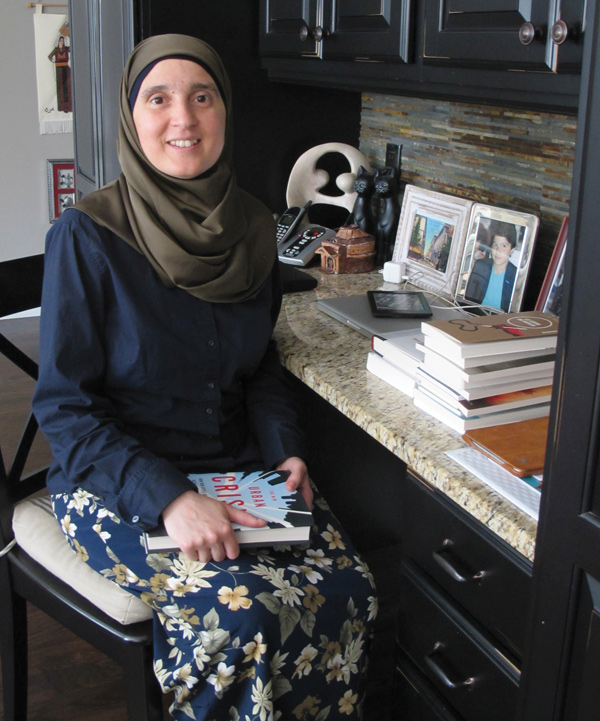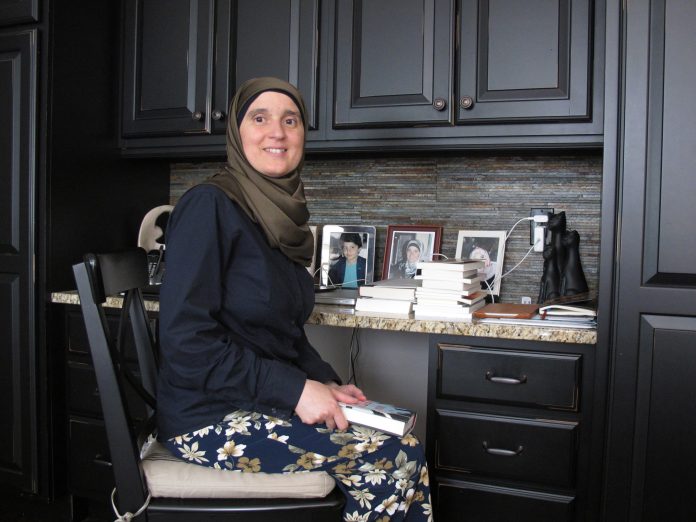By Andrea Prazmowski –
Monia Mazigh is on a deadline to get through a stack of books this summer, but she can’t tell us about them. She’s on the jury for a book award and it’s all secret until the award recipient is announced. She can, however, tell us about the books she reads for herself, that have to wait until bedtime.

Currently Monia is reading The Rice Mother by Rani Manicka, and enjoying learning about places and events she hadn’t encountered before. A girl in Ceylon (now Sri Lanka) is married off to a stranger from Malaysia and moves there, only to find he is not the wealthy man he claimed to be. She has children and survives the brutality of the Japanese occupation during WWII, and the book follows several generations and the impact on them of the earlier traumas.
Monia, author and human rights activist with a Ph.D. in Finance, also reviews economics books for a show on Radio-Canada. For that, she recently read The New Urban Crisis by Richard Florida, which examines issues of city planning, gentrification and affordable housing.
“It’s a very relevant book,” she notes. “Reading it, I thought a lot about Ottawa and how some political decisions can exclude some people from some neighbourhoods. These discussions are really affecting a lot of people; they’re not just academic discussions.”
While her reading for work includes many non-fiction books, Monia is personally drawn to novels, “to stories about people; simple stories like when people gossip; stories that make me believe this is something that can really happen.”
As she describes a novel she recently enjoyed, it seems it could easily be a real-life example in Florida’s book about urbanism.
A Strangeness in My Mind, by Turkish author Orhan Pamuk, follows a man named Mezut through four decades of working on the streets of Istanbul. He works as a yogurt seller and that line of work dies away as the country modernizes, and his humble neighbourhood is demolished to make way for office towers. “We see how the city changes; how it is affected economically but also socially,” she says, and how it impacts one man and his family. “I am drawn to these things that happen in life that make us who we are – the problems we encounter and how we react to them.”
In her book Hope and Despair, Monia shared the story of how she reacted when her husband, Maher Arar, was jailed and tortured in Syria, and of her struggle to free him. In her novel Hope Has Two Daughters, she wrote about revolutionary events decades apart in her country of birth, Tunisia, and the responses of a mother and a daughter to those events. Her next novel is about women’s lives in the 1930s in Tunisia, and is inspired in part by her grandmother’s memories.
Her own memories of growing up in Tunisia are filled with reading and books. She encourages her daughter and son to seek out the same sense of joy and discovery in books. “It’s a moment for themselves, either to escape and let their imagination go, or to try and connect with these other lives, here or abroad, to feel empathy for those lives.”
This post is part of our annual summer reads issue. Read all of our 2017 profiles right here.
